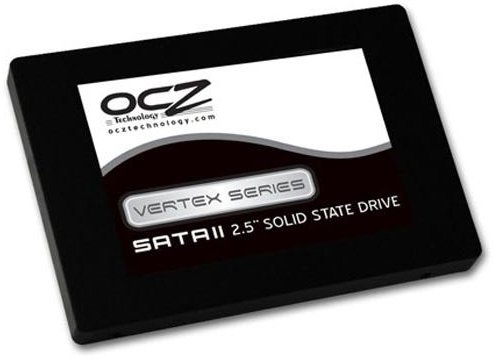Solid State Drives: Is the Performance Advantage Really There?
A Bump in the Road
Solid State Drives have shown a great deal of promise. Their performance is, in certain areas, far above what can be expected from a mechanical hard drive. They also promise reliability and silence, two qualitative traits which are just as important to many consumers as performance in read/write drag races or random access benchmarks.
That said, some problems have come to light which may make SSDs appear less attractive than when originally thought. These issues are severe enough that it is worth taking a second look at the real value provided by an SSD.
Feeling Used
The core of the problem is due to the way SSDs store data. The flash memory used in these drives is organized into pages which are in turn organized into blocks. Each block is 512kb in size and has 128 pages within it. If a page is empty, great - data can be written directly into it. There is no delay as the controller which manages the data has very little to do.
If there is already data written to a page, however, then the SSD controller proceeds to read the data of the entire 512kb block, modifies pages, and then re-writes the entire block of data. Compared to what the controller must do with an empty page, this is a drawn-out process. One would think that this problem would be minor since deleting content would free up pages, but this is not the case. Deleting files from an SSD only marks the pages as being available, but it does not actually revert them to their original state.
After First Impressions
Obviously, this could skew performance benchmarks. The drives tested by review websites are usually new products provided direct from the manufacturers. The reviewers therefore will be unlikely to encounter the penalty associated with writing over previously used pages during normal testing, and those reviewers who are not intimately familiar with the technical details probably never thought to consider this problem.
Some of the better tech websites have caught on, however, and the results of their tests have been revealing. Testing SSDs in their used state revealed that all of the SSDs currently available take a notable penalty when writing to previously used pages is required. These penalties are quite significant. The best results came from Intel’s drives, and even they could be up to 20% slower when creating new files.
The products hardest hit by this problem, however, were the products based off the Indilinx controller, which includes OCZ’s Vertex series and some Super-Talent products. This controller was anticipated because it was hoped to provide performance near that of Intel’s drives at a lower cost. When fresh this does seem possible. When used, however, the Indilinx based products performed very poorly, losing significantly not only to Intel’s SSDs but also to the fastest mechanical hard drives.
Holding Recommendations
Previously, I and others across the web had recommend OCZ’s new Vertex drives. They seemed to offer a high level of performance. This new information about their performance when used, however, changes the situation. While these drives are still interesting, they are mainly interesting only from a value angle. Certainly, the OCZ Vertex SSDs can provide a lot of storage for their price. Then again, older mechanical hard drives do perform better and are far less expensive.
SSDs still look to be an important part of long-term storage in the future, but these results suggest that the technology is not as mature as was originally thought. SSDs still rule the roost when it comes to random access, and this results in a “snappy” feel which mechanical drives cannot match. That said, most users, including those using laptops or those who don’t need a large amount of storage, are still better off with mechanical drives.
